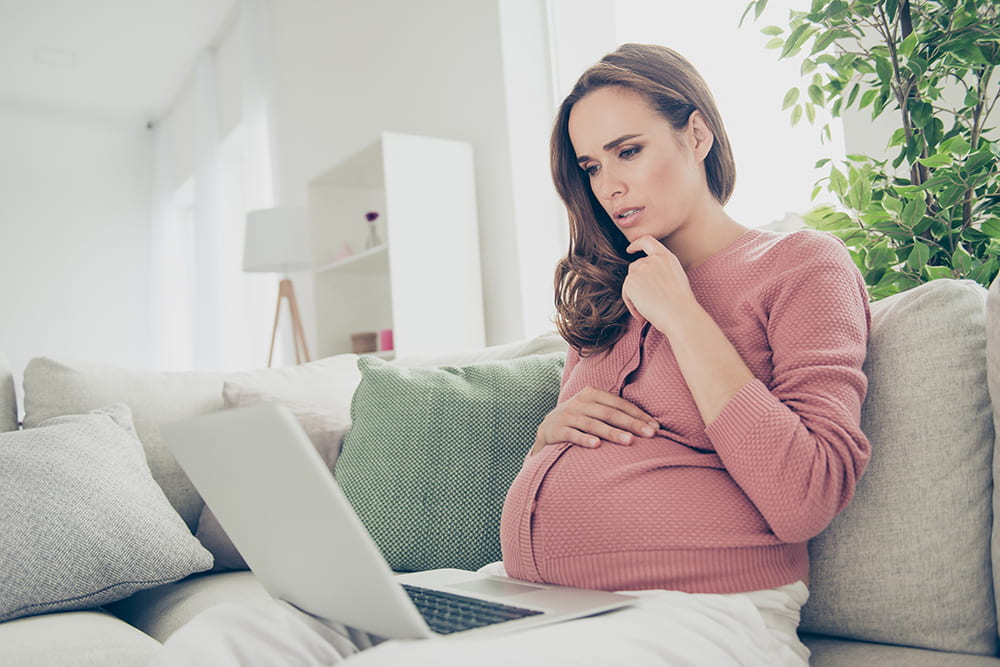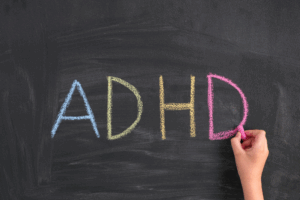I’m pregnant, should I get the COVID-19 vaccine?
This is a good question that many pregnant women or women thinking about becoming pregnant are asking. As a maternal-fetal medicine specialist, I’ll answer this and a few other questions in this blog.
Everything we do or do not recommend comes down to risks vs. benefits. This is true in all aspects of life. Riding in a car carries a small chance of a car accident, but we take that risk frequently. Riding with a 13-year-old driver on the interstate, this is a risk we’re not so willing to take. (Sorry, Zoe. My 13-year-old daughter is very responsible, just not quite ready for the interstate.)
Vaccines & Pregnancy
As a baseline, there are two vaccines we routinely recommend during pregnancy:
- Flu vaccine
- TDAP or Pertussis
Why are these vaccines recommended?
Flu vaccine: Pregnant women tend to get sicker or have more pulmonary complications with the flu. When this happens and you have a high fever or low oxygen level, you are at increased risk for preterm labor and other pregnancy complications. So, we don’t want you to get the flu while you’re pregnant, and the best preventative measure is the vaccine. This was especially important with H1N1, as the pulmonary complications were worse than other strands of flu. Increased pulmonary complications are also being seen with COVID-19. The flu vaccine, however, had been around for years. So, there had been exposed pregnancies and it felt safe, though there had been no actual randomized trials.
TDAP/Pertussis: About 15 years ago, we started to see an increase in Pertussis in the U.S., primarily from immigrants that were not routinely immunized in their countries. Since the vaccine doesn’t work until the baby is older, they looked at cord blood levels and found if you gave the mom the vaccine in the third trimester, you would give the baby high levels of antibodies that would protect the baby. It was considered low risk, since there had been lots of inadvertent exposure and no bad outcomes. Again, there was no formal randomized study.
How does this relate to COVID-19 vaccines?
Although the Pfizer and Moderna vaccines are new mRNA (messenger RNA) vaccines and the first of their kind, the technology behind these vaccines has been in place for years. This led to the advantage of being able to develop these vaccines faster than traditional vaccines.
mRNA DOES NOT change your DNA. It is just a recipe that your cells use to make a protein that is found in the COVID-19 virus. Your body recognizes that protein as “foreign” and builds antibodies to destroy it. Traditional vaccines inject the protein(s) itself.
There is no theoretical reason to believe that an mRNA vaccine would be harmful to pregnancy. The people who are immunized and pregnant or become pregnant are being registered to do follow ups to get data to prove this, but for now we have to go with our best theory.
Yes, there are risks of reactions to the components of the vaccine, and because your body is “fighting” the protein, you may feel a little ill, but that’s OK. This also happens with more traditional vaccines like the flu. Overall, the risk is low, but there are some theoretical unknowns, just to be honest. (But there are a lot of low risks we take in life: Did you know you can get listeria from lettuce? – just to be honest.)
What risk does COVID-19 present for pregnant women? I’m weighing the risk vs. the benefit of the vaccine.
With pregnant women, 1-3 per 1,000 with COVID-19 get severe symptoms compared to those who aren’t pregnant. Pregnant women are:
- Three times more likely to need ICU care
- Two to three times more likely to need advanced life support and a breathing tube
- Have a small chance of dying due to COVID-19
New data is also showing pregnant women are at an increased risk for stillbirth and preterm birth.
To summarize: The benefit of the vaccine is that it prevents or lessens the severity of COVID-19. COVID-19 is very contagious. Women who contract COVID-19 while pregnant have higher risk factors than the general population, including the increased need for ICU care, ventilator support, and a probable increased risk of stillbirth/preterm delivery. You DO NOT WANT COVID-19.
Other Common Questions About the COVID-19 Vaccine
Here are a few additional questions people often have about the COVID-19 vaccine.
What about breastfeeding and getting the vaccine?
Vaccination while breastfeeding is currently recommended. The risks are not yet known since like pregnant women, no studies were done on lactating women. However, one great benefit is if mom is vaccinated she will not be exposing her baby inadvertently to COVID-19.
Is there someone who doesn’t need the vaccine?
If someone has allergies to any ingredients in the vaccine or has been otherwise recommended by a physician to not receive the vaccine, then you would not be a candidate.
Is there someone who should get the vaccine?
Although it is still up to each person, health care workers, essential workers, people at high risk for exposure or with other preexisting conditions, including those of Latin and African descent, should strongly consider getting the vaccine.
What if I had COVID-19 already?
Current recommendations are to wait about 90 days after you had COVID-19 to get the vaccine.
Does the COVID-19 vaccine cause infertility?
There’s no reason to believe the vaccine would cause infertility. There has been no evidence of this in prior animal studies.
Medical Resources for Your Review
The Society for Maternal Fetal Medicine has a talking points guide for you to discuss with your health care provider.
I encourage you to View this Guide and talk to your health care provider.

Sean Kenney, MD
Maternal-Fetal Medicine Specialist
Dr. Kenney is a Maternal-Fetal Medicine specialist with the Center for Maternal & Fetal Care, part of the Bryan Physician Network.









